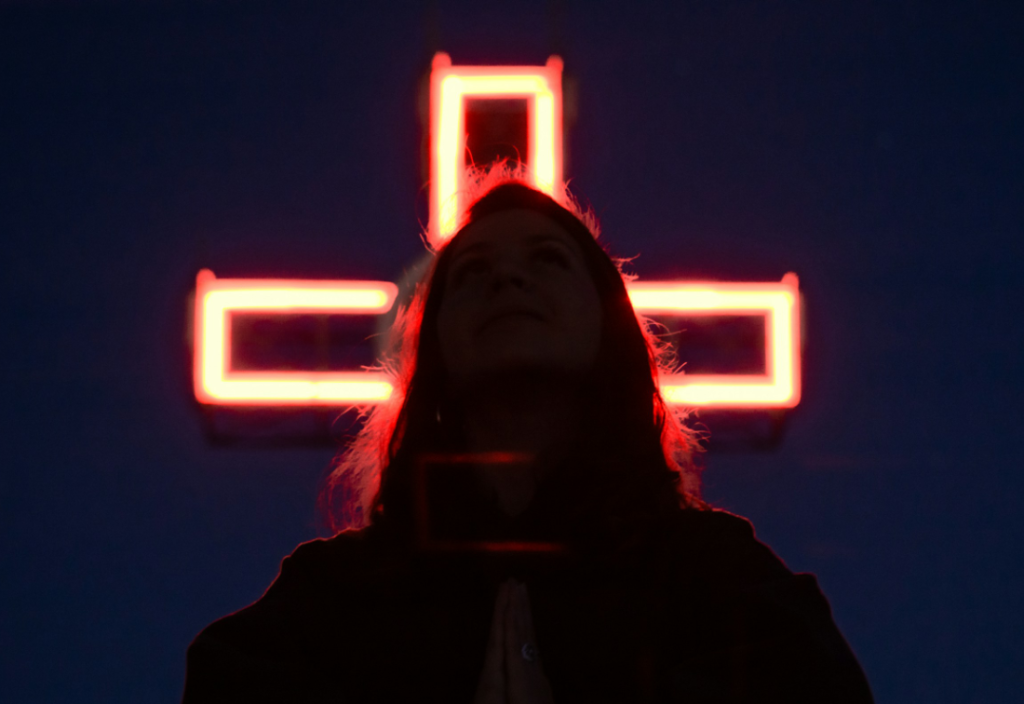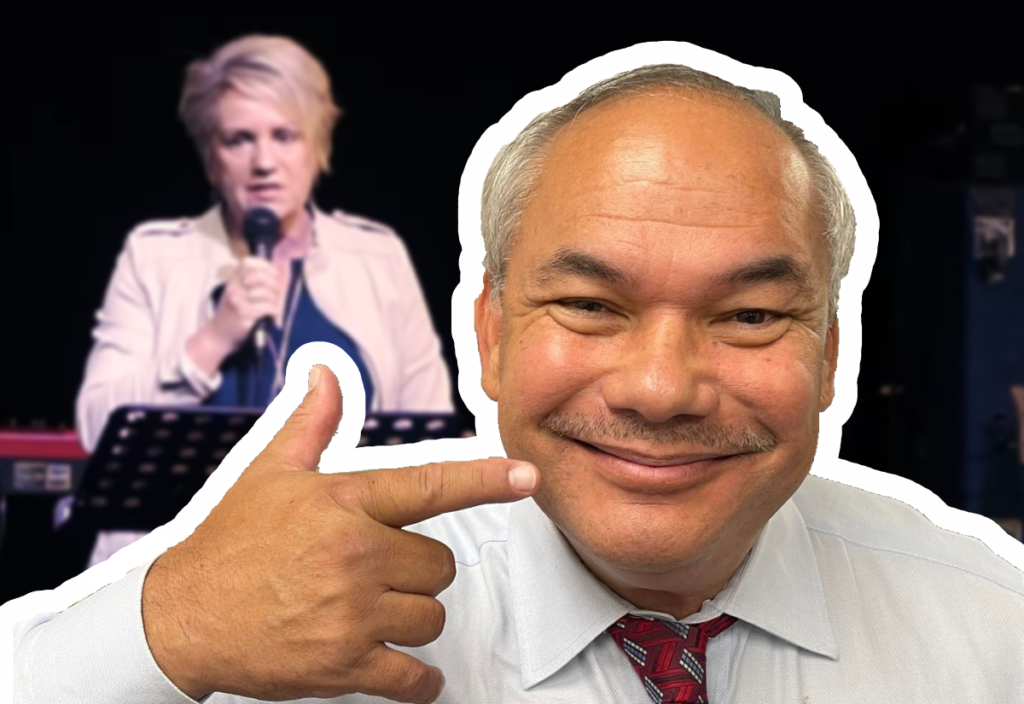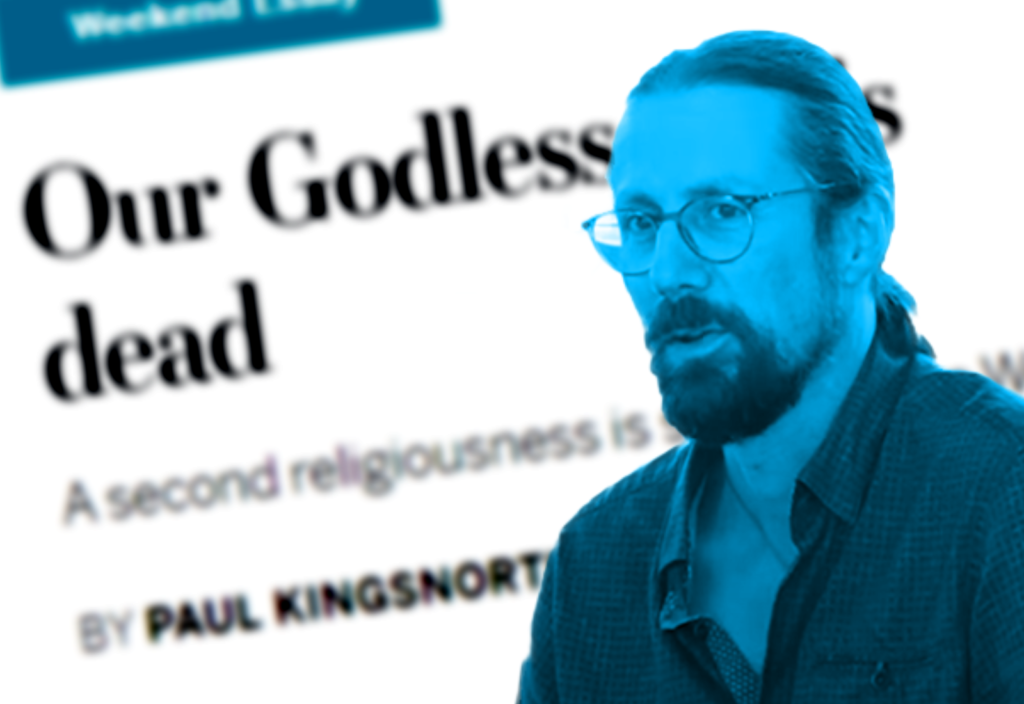It had been a year since I saw my family. In the Army, it was a year of obeying orders, marching routines, weapons drills, fire and movement, and making beds my non-commissioned officers (NCOs) could bounce a coin on.
Still, the wide eyes and strange rumours that passed to me from family and friends piqued my curiosity — I’d missed something big.
I had left a small Christian church that was ambitious but still grounded in what I believed to be community values and selfless ideals. I returned to a church that had joined a radical, international network spurred to indoctrinate the broader community: the ISAAC Network.
Members of this community separated themselves from religion, even Christianity, to form a prophetically inspired movement based on insights only passed down to God’s chosen elite. These apostolic congregations followed a self-proclaimed prophet who had visions of his ideology taking over through “a divine attack on the nation”.
The website of the ISAAC Network’s leader, Jonathan David, outlines a ‘National Strategy’ in which they plan to build ‘apostolic bases’ in targeted countries to “divide those nations into regions to effectively penetrate and ‘conquer’ them”.
I had a lot of catching up to do. The pastors of my small-town church had been grooming me for years to eventually take over as leader of their congregation. To entice me further into the lifestyle that they had designed, they claimed to have had prophetic visions of me marrying their daughter. But I was well behind on their new, dogmatic philosophies.
To be the figurehead that they had intended, I would need to adopt an intensive routine which would be determined by my pastor. Even though Andrew* was appointed as the leader of the church, it was his wife, Eliza*, who called the shots. Under her guidance, I would attend counselling sessions weekly and church meetings multiple times to hone my capabilities as one of the chosen elites.
Counselling sessions became personal and intimate, eventually turning into massages to facilitate the ‘laying on of hands’ which I was told was an important part of communicating divine powers. Andrew was often present for the massages his wife would perform.
While there was never overt sexual interaction, the power dynamic of leader and subordinate crossed into invasive territory. Years later, I would learn that many of the young men in the church had been subjected to the same treatment.
Years passed, and I was forever struggling to keep up with the impossible, ever-changing standard. My disillusionment led me to begin probing for evidence-based answers — a decision which only sent me further onto the fringes of the evangelical sect.
Counselling sessions became personal and intimate, eventually turning into massages to facilitate the ‘laying on of hands’ which I was told was an important part of communicating divine powers.
For weeks on end, we were expected to appear at the church for intensive worship sessions. Sermons were moved from Sunday morning to Saturday evening. These were strategies Eliza used to eliminate any opportunity for her following to socialise outside of the fold.
My concerns grew with each sermon. Whispers of leaving the church had begun circling among my family and friends. However, we weren’t prepared to leave without making some attempt to appeal to them with reason in the hope Pastor Eliza would see the corrupted ideology that had beguiled her. Discussions were perceived as dissent. Dissent was met with berating and ostracisation. As our attempts to open dialogue failed, Eliza’s grip tightened, unwilling to let go of the acolytes she created.
One Saturday night, after a three-hour sermon, a boy talked back to his mum. Eliza launched an offensive at the child, enraged by his disrespect. But her vitriol was heightened further when she saw the symbol on his t-shirt – a skull – an emblem of the undead and demonic worship. Gripping the boy’s ankles, she pulled him from his seat and repeatedly dropped him on his head. She screamed and prayed in tongues until raising her eyes to look around the room to find me. “Help me,” she said.
I realised then that she was convinced she was the victim. The child’s shirt was an affront to all things holy and she was the only one willing to do what was necessary to combat this indisputable evil.
I refused to help her. My objections led me to staunchly oppose her ideals and condemn her actions. In response, they justified their actions by claiming such physical aggression is necessary to exorcise some demonic influences.
Shortly after, I went to the pastors’ house to inform them of my decision to leave the church. Eliza saw it coming but all she had to say was that my departure could only mean one thing: I can’t love. Being so close to them for so long, then leaving them meant I lacked the ability to feel and give any fundamental human attachment.
The years since my separation from the cult have been kind. I can, once again, pursue creative expression — something that was discouraged in the church.
My book Sovereignty grapples with the themes of indoctrination and radicalisation. Through the story of a Roman church owner who blackmails Jesus into saying he’s the son of God to increase donations, I explore my own manipulation and extortion.
This book appears incendiary and abstract on the surface, but it is so personal to me that I may not be able to separate its themes from who I am as a writer, as a brother, as a husband, and as a person.
*Real names have not been used.
Published 23 April 2024.
If you wish to republish this original article, please attribute to Rationale. Click here to find out more about republishing under Creative Commons.
Photo by Cassidy Rowell on Unsplash.














